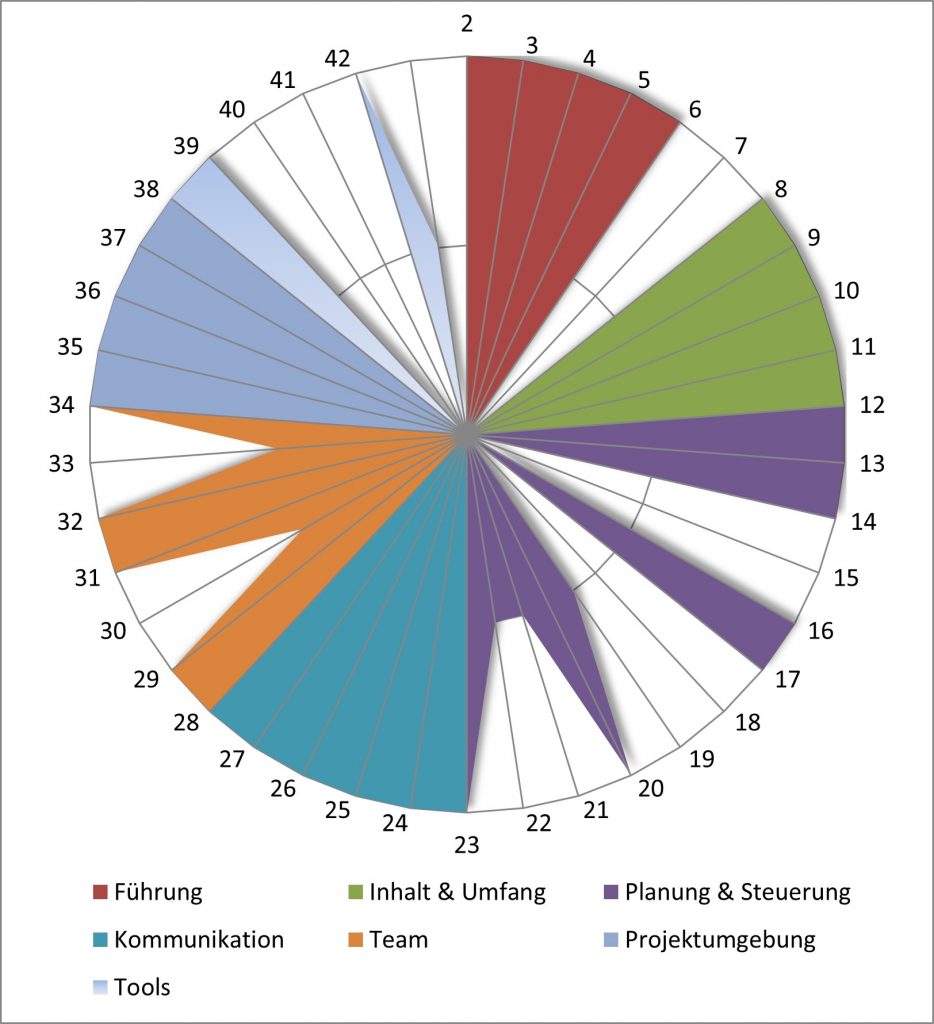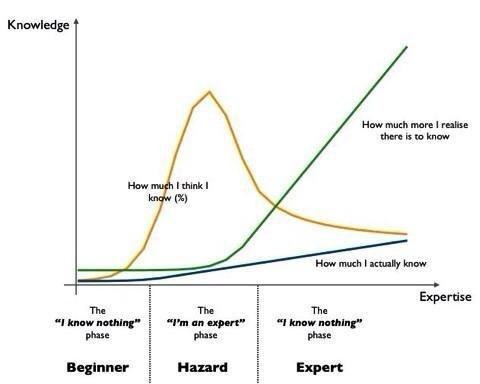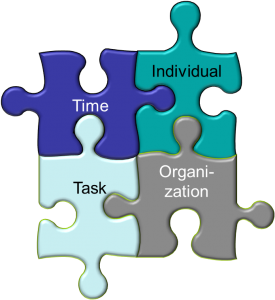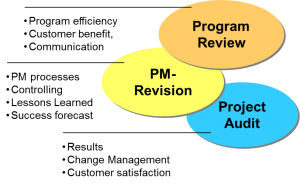This is a question I ask myself regularly as the reasons and the causes I find in my Project Revisions and at the Project Recovery are frequently so trivial that you need to ask: Why at all, and why repeatedly again?!
Probably a reason:
Because they are not managed as professionally as the running business. In many companies projects are executed on the side of daily business though they take up a considerable part of the corporate workload nearly everywhere. They are done “on the fly” by employees who originally have to serve their departments with other tasks. Tasks by which they are primarily measured. Guess where their priorities lie. And they never had a proper education or further training in project management, do not know what to look at when managing uncertainty. Guess how many (expensive) surprises they will face…
An example (not an exemption!)

Recently I did an interview at an exemplary case. There was a company that had chosen a development / implementation partner, got a project manager who dabbled in project management and failed miserably due to insufficient skills. That was already wasting a lot of more money and precious time.
However, they recognized – and nay conceded! – the fact, and now looked for a project manager who could straighten up the mess and stabilize the project.
There are a lot of consultants. And then they came across a provider who should scour the market for a qualified project recovery expert, but in fact filter for the best salary offer (which is easier to sell…), not for the consultant’s competence. Things like that happen every day, over and again. How much punished can you get, up to a total write-off?! Only because money again plays the dominant role, not the result?!!! Do you recognize the scheme? This is unprofessional and would have never happened at a recovery attempt for the company. And yet it would be so easy to avoid…
I suffer with the hundreds of firms where it’s the same! A project recovery, done professionally, does cost so much less than a distressed project continued with insufficient means, and which additionally demotivates or even scares off well educated employees. And on top it will not even earn a minimum of business benefits if cancelled, only a write-off.
Answers
Back to my interview. I received many and long replies, all from executives in C-level of big companies as well as from mid-range ones. All confirmed my perception. They recognized the reasons in internal sensitivities against hiring external staff, long recruiting and procurement processes, the error culture of “not-to admit”, or contractual ties. Mainly because “the system” prevents a professional recovery. Only one CIO (of a problem-shaken, formerly mega public company) wrote, I first should apply in the regular pre-qualification process at the central procurement before I maybe would appear on his radar. It will get difficult to communicate with him on eye level, or even resolve his company’s issues…
My answer is, however, generic. It is directing to “first properly set up the project, and make it ready to be controlled” – with appropriate methodology and (risk)providence. As the customer you always need to be thorough with your supplier selection. That includes for me also procurement to consider the supplier’s project management competence as an important criterion for project success.
If the project, against all good foresight, gets into trouble though, it should however always be in the interest of all parties involved to mitigate a crash or a legal litigation. To keep up concerns for “the system” still would be an entrepreneurial failure. That certainly would be unacceptable, if only due to the sponsors’ pressure, if the case were a company’s distress.
Exceptional situations require exceptional measures.

A Project Revision avoids the failure. The project will only provide the (for all parties) desired business benefit if all act in concert – and in the same direction. Wouldn’t a consensual agreement to a professional audit (see also https://eobz.de/?p=374) be the most targeting resolution – for neutrality done by an external third, who likely even could be paid by both parties? This would probably be the most economical approach for all parties, wouldn’t it?
Whether the operative Project Recovery with the recommendations found in the revision is done back internally or with my guidance – that’s another decision then. But stabilizing the project will always be more favorable than a total write-off, even if hiring an auditor or recovery first will cost additional salary.
Conclusion
To provide proper project management for corporate projects is matter of the boss! And to hire an expert to recover a troubled project is decision of the boss, too…




 But there are also successful exceptions where the boss feels bad for the burned money, and lionhearted requests advice from external experts. If he does early enough there is mostly hope for project success and a gain of lessons for the future.
But there are also successful exceptions where the boss feels bad for the burned money, and lionhearted requests advice from external experts. If he does early enough there is mostly hope for project success and a gain of lessons for the future.



 The issues are not the main problem
The issues are not the main problem Waiting burns money and trust! Therefore act early, i.e. before the project is right in front of the wall (milestone, penalties etc.). The earlier you recognize and tackle the issues the smaller your losses are. And you have more options for measures or negotiations as well.
Waiting burns money and trust! Therefore act early, i.e. before the project is right in front of the wall (milestone, penalties etc.). The earlier you recognize and tackle the issues the smaller your losses are. And you have more options for measures or negotiations as well. Not a solitary case as experience shows
Not a solitary case as experience shows Different treatment of crisis situation at companies vs. projects
Different treatment of crisis situation at companies vs. projects At public authorities in many countries problems mostly are pre-programmed „in the system“. Processes and instructions for solicitation and seller selection, like German VOB, are pre-defined in nuclear detail; after that projects are expected to strictly follow the contracts. Project management often does not exist at all or is limited to coordination without authority; mostly it is also contracted to the supplier. The faith in regulations washes clean from all insufficiencies outside the rules and blocks self-reliant initiatives for improvement. It really takes a very prominent “bad case”, highly political and too big to die, and a very prominent external savior from the political environment to make a significant setting the course happen. Let’s not examine his own competence to recover projects…
At public authorities in many countries problems mostly are pre-programmed „in the system“. Processes and instructions for solicitation and seller selection, like German VOB, are pre-defined in nuclear detail; after that projects are expected to strictly follow the contracts. Project management often does not exist at all or is limited to coordination without authority; mostly it is also contracted to the supplier. The faith in regulations washes clean from all insufficiencies outside the rules and blocks self-reliant initiatives for improvement. It really takes a very prominent “bad case”, highly political and too big to die, and a very prominent external savior from the political environment to make a significant setting the course happen. Let’s not examine his own competence to recover projects…